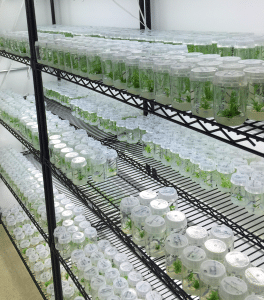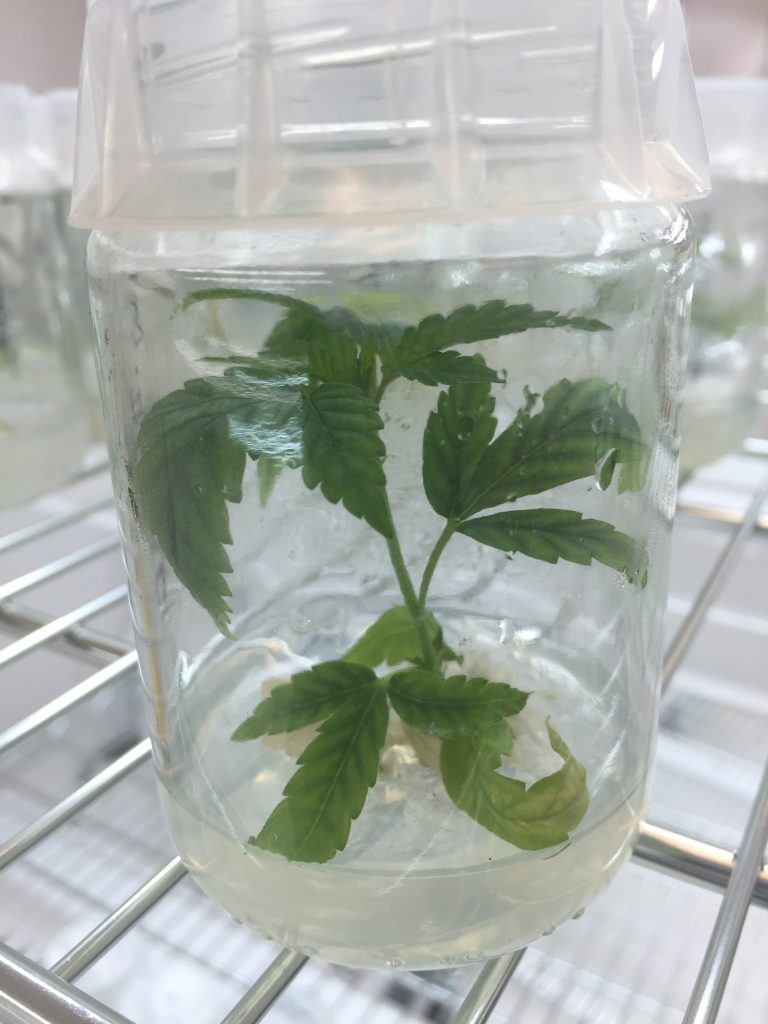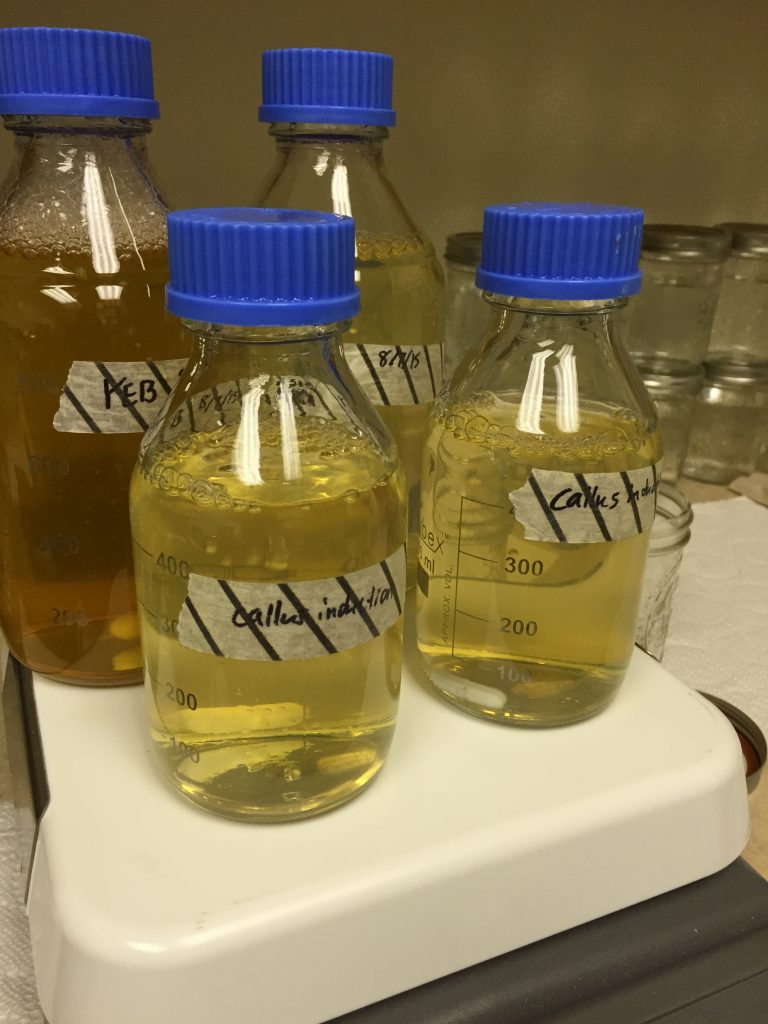Cannabis Tissue Culture Consulting Services
Cultivation Sector Consulting can help you set up and successfully operate your tissue culture and micropropagation facility. Contact Us Today
Minnesota Cannabis Business Consulting
Cultivation, Extraction & Retail Consulting and Licensing Documentation
 A successful cannabis cultivation operation all starts with the plants that you grow. Plant Tissue Culture and micropropagation are advanced methods of clonal plant propagation and offer several advantages over traditional cloning or propagating from seed. Plants in tissue culture are grown in a sterile environment which has some significant benefits in comparison to traditional cloning. Mainly, with tissue culture methods, plant tissue is washed and dissected prior to being cultured, which is a process that removes all pathogens and pests that might be living on the plant. The sterile laboratory environment used for tissue culturing ensures that pathogens cannot re-infect the plants in culture, which results in pathogen-free plants being produced as the end products. The sterile, controlled setting of a tissue culture facility also removes the main stressors that keep plants from maximizing their growth and realizing their genetic potential. When growers seek tissue culture services or want to start their own TC labs, it’s usually because their favored cultivars are not producing the quality and quantity of flower that they previously did. This is because diseases and environmental stressors caused “epigenetic” changes in the plants over time, slowly reducing their vigor.
A successful cannabis cultivation operation all starts with the plants that you grow. Plant Tissue Culture and micropropagation are advanced methods of clonal plant propagation and offer several advantages over traditional cloning or propagating from seed. Plants in tissue culture are grown in a sterile environment which has some significant benefits in comparison to traditional cloning. Mainly, with tissue culture methods, plant tissue is washed and dissected prior to being cultured, which is a process that removes all pathogens and pests that might be living on the plant. The sterile laboratory environment used for tissue culturing ensures that pathogens cannot re-infect the plants in culture, which results in pathogen-free plants being produced as the end products. The sterile, controlled setting of a tissue culture facility also removes the main stressors that keep plants from maximizing their growth and realizing their genetic potential. When growers seek tissue culture services or want to start their own TC labs, it’s usually because their favored cultivars are not producing the quality and quantity of flower that they previously did. This is because diseases and environmental stressors caused “epigenetic” changes in the plants over time, slowly reducing their vigor.
In addition to enhancing the performance and health of your plants, tissue culture allows you to maintain your genetic stock—your mother plants–in a safer and more economical way. Tissue culture also allows for the rapid multiplication of baby plants of any new cultivars you aim to place into large-scale flower production.
 Although plant tissue culture has been around for decades and is widely used for propagation and genetic banking in traditional agriculture, it is relatively new to cannabis and still has its limitations for mass propagation of cannabis through tissue culture. As of now, it is best to pair a small tissue culture lab with traditional cloning in order to grow large numbers of clones to fill a facility. Tissue culture will produce higher quality mother plants that will provide better clones to your flowering facility, and these superior mother plants can be replaced frequently from culture to avoid any disease buildup that could negatively affect your harvests. Our team has years of experience in both cannabis tissue culture and traditional cloning and we can help you create a better beginning to your supply chain. After all, the quality of your baby plants is where the whole process begins!
Although plant tissue culture has been around for decades and is widely used for propagation and genetic banking in traditional agriculture, it is relatively new to cannabis and still has its limitations for mass propagation of cannabis through tissue culture. As of now, it is best to pair a small tissue culture lab with traditional cloning in order to grow large numbers of clones to fill a facility. Tissue culture will produce higher quality mother plants that will provide better clones to your flowering facility, and these superior mother plants can be replaced frequently from culture to avoid any disease buildup that could negatively affect your harvests. Our team has years of experience in both cannabis tissue culture and traditional cloning and we can help you create a better beginning to your supply chain. After all, the quality of your baby plants is where the whole process begins!
There are certain considerations in building a tissue culture lab that will affect capital costs and potentially affect productivity. Much of this depends on the scale of the lab and how many plants you want to produce. One consideration directly related to scale is whether to use a pressure cooker or an autoclave to sterilize media, culture vessels and tools. A pressure cooker is significantly cheaper but is much smaller and tends to take longer to sterilize. Using an autoclave is quicker and has a higher capacity. There are also large media preparation machines that can sterilize the media and dispense it, however these items really only make economic sense for large scale production labs.
Another design consideration for your TC lab is water quality. It is important to use clean filtered water that does not contain microbial contaminants or minerals, but not all filtered water is the same. You can start a small-scale TC lab by purchasing distilled water, and then install a water filtration system later, or go straight to in-house water filtration, to varying costs and degrees of sophistication. If you intend for your lab to perform advanced molecular biology lab processes such as plant sex testing using PCR or marker assisted breeding, for example, you’ll want a water filtration system that eliminates “nucleases” that can affect DNA/RNA and thereby interfere with the accuracy of your data.
Another decision that is important to your lab is control of the air conditions and quality. Plant tissue culture requires precise and stable temperatures and also requires a clean-room environment where air particles are being measured and captured at all times. Having a properly sized A/C system and having HEPA filtration in your HVAC system can make a huge difference in the performance of your laboratory and the health of your plants in culture. Once a culture vessel is contaminated, the microbes will overtake the media and the plant being cultured, and infected cultures must be discarded. Maintaining clean and stable environmental conditions in the lab can be costly, so if the budget is not there for the highest level of environmental controls, there are ways to succeed at TC effectively on a smaller scale with less investment capital. It’s just important to realize that a bootstrapped TC lab is likely to experience setbacks and challenges in comparison to a fully financed operation, but it can still perform the basic function of keeping your mother plant stock free of pests.

Our cannabis and hemp tissue culture micropropagation services include the design of your tissue culture lab—the floor plan, equipment selection, media formulations–and SOPs, training of 1-2 employees of your choice (your lab manager ideally), and implementation support in person or remotely by video. We ensure that you will have a TC lab that can successfully perform micropropagation and genetic banking, and that you will be able to eliminate most pathogens from your genetic stock. (Disclaimer: some diseases such as viruses are harder to treat and require more advanced techniques and/or R&D. Detecting their presence will require that you have access to a plant pathology lab that accepts cannabis samples in order to identify the particular disease being targeted.)
For most cultivators, the size of the TC lab necessary will cost approximately $60K in equipment, and depending on the space that you intend to use to set up the lab, there will likely be some modest construction costs associated as well.
Chase Huff is the tissue culture expert at Cultivation Sector Consulting. He is a scientist, an artist and a businessman, passionate about designing and implementing highly efficient and effective cannabis production systems.
Contact us today to get started on building your very own tissue culture lab to elevate your cultivation facility to the next level!
Cultivation Sector Consulting can help you set up and successfully operate your tissue culture and micropropagation facility. Contact Us Today